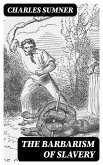In "The Way to Abolish Slavery," Charles Stearns presents a compelling examination of the moral, social, and political arguments surrounding the abolition of slavery in 19th-century America. Stearns employs a persuasive and accessible literary style, blending philosophical discourse with passionate rhetoric, which serves to engage both advocates and opponents of the abolitionist movement. Set against the backdrop of an increasingly divided nation, this book weaves historical context with ethical imperatives, challenging readers to confront the brutal realities of slavery while advocating for emancipation as an essential step towards justice and humanity. Charles Stearns, a fervent abolitionist and social reformer, was deeply influenced by his personal experiences with the injustices of slavery and the burgeoning movements for equality and human rights. His background as a minister and educator equipped him with the necessary rhetorical tools to articulate the urgency of abolition. As the antebellum period ignited the flames of social and political upheaval, Stearns engaged with a network of like-minded reformers, drawing inspiration from their collective vision for a more equitable society, which ultimately propelled him to write this seminal work. I highly recommend "The Way to Abolish Slavery" to anyone interested in the socio-political history of America or the ethical considerations of social justice. Stearns's rigorous analysis not only illuminates the historical arguments for abolition but also offers timeless insights into the continuing struggle for equality. This book is an essential read for scholars, students, and all who seek to understand the moral complexities of human rights advocacy.
Dieser Download kann aus rechtlichen Gründen nur mit Rechnungsadresse in A, B, BG, CY, CZ, D, DK, EW, E, FIN, F, GR, H, IRL, I, LT, L, LR, M, NL, PL, P, R, S, SLO, SK ausgeliefert werden.









